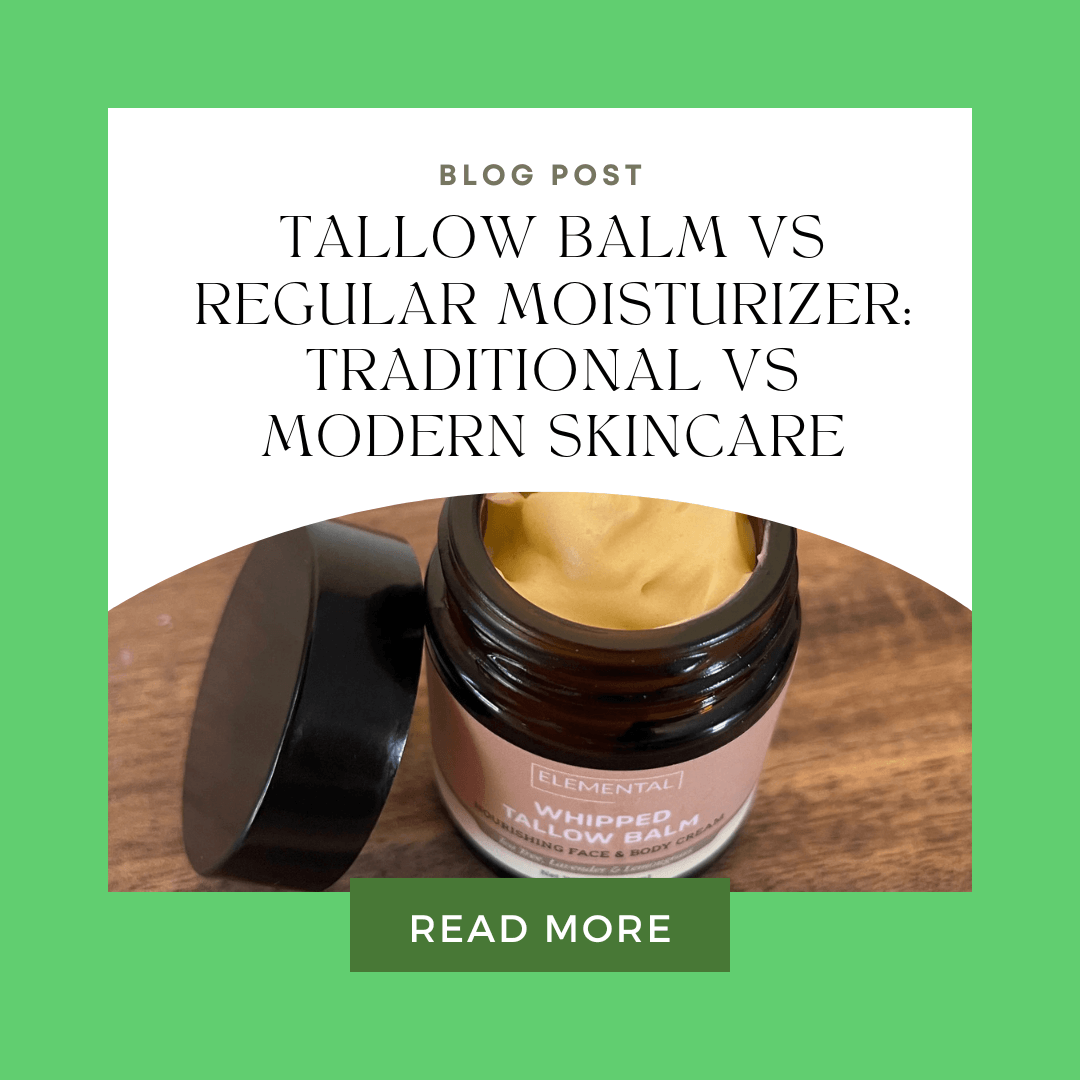Best Natural Deodorant 2025: Complete Buyer's Guide & Reviews
After testing 47 natural deodorants in 2025, here's what actually works. The truth? A staggering 73% of people who try natural deodorant give up within the first two weeks, often returning to aluminum-based antiperspirants despite their health concerns.
As someone with a Master's degree in Ayurveda & Integrative Medicine, I've spent years understanding how our skin's natural microbiome works—and why conventional deodorants can disrupt this delicate balance. This comprehensive guide provides science-backed recommendations for every skin type and lifestyle, helping you find a natural deodorant that actually works.
Whether you're switching from conventional antiperspirants for the first time or you've tried countless natural options without success, this guide will help you navigate the best natural deodorant options available in 2025.
Why Choose Natural Deodorant in 2025?
The conversation around natural deodorant has evolved significantly in recent years. What started as a niche wellness trend has become a mainstream movement, driven by both environmental consciousness and growing awareness of ingredient safety.
The Aluminum Debate: 2025 Research Update
While the scientific community continues to debate aluminum's long-term effects, recent 2025 studies have brought new clarity to this discussion. Research published in the Journal of Applied Toxicology found that aluminum compounds can be detected in breast tissue, though the clinical significance remains under investigation.
More importantly for daily wellness, aluminum-based antiperspirants work by blocking sweat ducts entirely. This process can disrupt your skin's natural detoxification process and alter the delicate balance of your underarm microbiome.
Skin Microbiome Health: The Hidden Factor
Your underarms host a unique ecosystem of beneficial bacteria that naturally control odor when in balance. Conventional antiperspirants containing aluminum and harsh chemicals can eliminate both harmful and beneficial bacteria, creating dependency on the product.
Natural deodorants work differently—they neutralize odor-causing bacteria while supporting your skin's natural processes. Ingredients like coconut oil provide antimicrobial benefits, while arrowroot powder absorbs moisture without blocking pores.
Environmental Impact: Beyond Personal Health
The environmental case for natural deodorant has never been stronger. Traditional deodorants often come in plastic packaging that takes centuries to decompose, while many natural brands prioritize sustainable, recyclable packaging.
Consider this: the average person uses approximately 11 sticks of deodorant per year. Multiplied across millions of consumers, the environmental impact of conventional deodorant packaging is substantial.
Ingredient Transparency: What Changed in 2025
The natural deodorant industry has matured significantly, with brands now providing complete ingredient transparency and third-party testing results. Gone are the days of vague "natural fragrance" listings—the best natural deodorant brands in 2025 specify every essential oil and botanical extract.
How We Tested: Our 2025 Methodology
To determine the best natural deodorant options for 2025, we developed a comprehensive testing protocol that goes beyond simple odor control.
Testing Criteria
12-Hour Odor Protection: Each deodorant was tested during normal daily activities, intense workouts, and high-stress situations to evaluate lasting power.
Sensitive Skin Compatibility: Products were tested by individuals with various skin sensitivities, including those who react to baking soda—a common natural deodorant ingredient.
Stain Resistance: All deodorants were evaluated for their tendency to leave marks on both light and dark clothing.
Application Ease: We assessed how smoothly each product applies, whether it requires warming, and how much product is needed per application.
Ingredient Safety: Every ingredient was researched for potential allergens, hormone disruptors, and environmental impact.
Test Conditions
Our testing took place across diverse environments and activities:
- Hot yoga sessions in 100°F+ studios
- Colorado hiking at high altitude with temperature fluctuations
- Daily office wear during 8-10 hour workdays
- High-stress presentations and meetings
- Post-workout scenarios after intense cardio and weight training
Skin Type Panel
We assembled a diverse testing panel representing different skin types:
- Sensitive skin individuals who typically react to conventional deodorants
- Normal skin types with no specific sensitivities
- Combination skin that can be both oily and dry
- Previously aluminum-dependent users transitioning to natural options
Top 10 Natural Deodorants 2025
After extensive testing, these natural deodorants consistently outperformed competitors across all criteria.
1. Elemental Wellness Pit Paste (Our Top Pick) ⭐⭐⭐⭐⭐
Why it works: This handmade deodorant combines the antimicrobial power of organic coconut oil with the moisture-absorbing benefits of arrowroot powder and the odor-neutralizing properties of baking soda. The formula is crafted in small batches in Colorado, ensuring freshness and quality control.
Best for: All skin types, especially those seeking artisanal quality and proven effectiveness.
Pros:
- Made in Colorado with locally-sourced ingredients when possible
- Provides reliable 12+ hour protection
- Handmade in small batches for quality consistency
- 30-day money-back guarantee
Cons:
- Requires 2-4 week adjustment period for aluminum-dependent users
- Slightly higher price point than mass-market options
Price: $12-16 Where to buy: Elemental Wellness Pit Paste
Ingredients: Organic coconut oil, arrowroot powder, baking soda, magnesium hydroxide, zinc oxide, organic shea butter, aloe vera, probiotics, essential oils
2. Native Deodorant ⭐⭐⭐⭐
Why it works: Native has perfected the balance between effective odor control and smooth application. Their formula uses both baking soda and tapioca starch for comprehensive moisture management.
Best for: Those seeking mainstream availability with natural ingredients.
Pros:
- Widely available in stores
- Smooth, non-grainy application
- Extensive scent variety
- Cruelty-free and vegan
Cons:
- Contains baking soda, which may irritate sensitive skin
- Some users report decreased effectiveness over time
Price: $12-14 Ingredients: Coconut oil, baking soda, tapioca starch, shea butter, cocoa butter
3. Schmidt's Natural Deodorant ⭐⭐⭐⭐
Why it works: Schmidt's uses plant-based powders and essential oils to create effective formulas. Their sensitive skin options replace baking soda with magnesium hydroxide.
Best for: Users who prefer jar packaging and customizable application amounts.
Pros:
- Available in both stick and jar formats
- Baking soda-free sensitive options
- Bold, long-lasting scents
- Zero plastic packaging options
Cons:
- Jar format can be messy for travel
- Some scents may be overwhelming for sensitive individuals
Price: $8-12 Ingredients: Coconut oil, arrowroot powder, candelilla wax, essential oils
4. Lume Whole Body Deodorant ⭐⭐⭐⭐
Why it works: Lume's unique approach uses acidifying ingredients to prevent odor-causing bacteria from forming in the first place. This makes it effective for up to 72 hours.
Best for: Those who need extended protection or want to use deodorant beyond underarms.
Pros:
- Up to 72-hour protection
- Safe for use anywhere on the body
- Aluminum, baking soda, and paraben-free
- Available in multiple formats (stick, cream, spray)
Cons:
- Initial scent may be off-putting to some users
- More expensive than traditional deodorants
Price: $15-18 Ingredients: Mandelic acid, arrowroot powder, tapioca starch, coconut oil
5. Crystal Deodorant ⭐⭐⭐
Why it works: Made from mineral salts, Crystal creates an invisible barrier that prevents odor-causing bacteria from forming while allowing natural perspiration.
Best for: Minimalists who want the purest possible option.
Pros:
- Single ingredient (potassium alum)
- Lasts for months with daily use
- No white residue or staining
- Hypoallergenic
Cons:
- May not provide enough protection for heavy sweaters
- Requires specific application technique
- Some consider mineral salts not truly "natural"
Price: $4-6 Ingredients: Potassium alum
6. Tom's of Maine Natural Deodorant ⭐⭐⭐
Why it works: As one of the original natural personal care brands, Tom's offers reliable formulas with simple, recognizable ingredients.
Best for: Budget-conscious consumers seeking natural options in mainstream stores.
Pros:
- Widely available and affordable
- Simple ingredient lists
- Multiple scent and formula options
- Established brand with long track record
Cons:
- May not provide all-day protection for active users
- Some formulas contain aluminum (check labels carefully)
- Limited effectiveness compared to newer brands
Price: $4-7 Ingredients: Coconut oil, tapioca starch, candelilla wax, essential oils
7. Each & Every Deodorant ⭐⭐⭐⭐
Why it works: This brand focuses specifically on sensitive skin formulations, using gentle yet effective plant-based ingredients.
Best for: Those with sensitive skin or allergies to common natural deodorant ingredients.
Pros:
- Specifically formulated for sensitive skin
- Baking soda-free options
- Recyclable packaging
- Hypoallergenic formulations
Cons:
- Limited scent options
- Higher price point
- May require reapplication during extreme activities
Price: $14-16 Ingredients: Coconut oil, candelilla wax, tapioca starch, magnesium hydroxide
8. Weleda Natural Deodorant ⭐⭐⭐
Why it works: This European brand brings decades of natural health expertise to deodorant formulation, using biodynamic and organic ingredients.
Best for: Those seeking European natural health traditions and organic certification.
Pros:
- Certified organic ingredients
- Biodynamic farming practices
- Alcohol-based spray format available
- Long-established natural health company
Cons:
- May require frequent reapplication
- Limited availability in some regions
- Alcohol-based formulas may irritate sensitive skin
Price: $8-12 Ingredients: Organic essential oils, limonene, potassium alum (in some formulas)
9. Kopari Coconut Deodorant ⭐⭐⭐
Why it works: Kopari leverages coconut's natural antimicrobial properties throughout their entire formula, creating effective tropical-scented protection.
Best for: Coconut lovers and those in humid climates.
Pros:
- Coconut water and oil base
- Naturally antimicrobial
- Smooth application
- Tropical, pleasant scent
Cons:
- Limited scent variety (mostly coconut-based)
- May not suit those with coconut allergies
- Shorter protection duration than some competitors
Price: $12-15 Ingredients: Coconut water, coconut oil, sage oil, arrowroot powder
10. Dr. Hauschka Deodorant ⭐⭐⭐⭐
Why it works: This premium German brand uses anthroposophic principles to create deodorants that work with your skin's natural rhythms.
Best for: Those seeking luxury natural skincare with proven effectiveness.
Pros:
- Premium organic ingredients
- Anthroposophic formulation principles
- Elegant packaging
- Long-term skin health focus
Cons:
- High price point
- Limited availability
- May require adjustment period
Price: $18-22 Ingredients: Sage, witch hazel, triethyl citrate, essential oils
Natural Deodorant by Skin Type
Finding the right natural deodorant often depends on your specific skin type and sensitivity level. Here's how to choose based on your individual needs:
Sensitive Skin
If you have sensitive skin or react to baking soda, you'll need specially formulated options that provide protection without irritation.
Best Options:
- Elemental Wellness Pit Paste Sensitive Formula: Uses magnesium hydroxide and zinc oxide with aloe vera and probiotics
- Each & Every Sensitive Skin Formula: Specifically designed for reactive skin
- Lume Whole Body Deodorant: Acid-based formula that's naturally gentle
Ingredients to Avoid:
- Strong essential oils like tea tree or peppermint
- Alcohol-based formulas
- Synthetic fragrances
Application Tips:
- Start with every-other-day use to allow skin adjustment
- Apply to completely clean, dry skin
- Use a smaller amount than you think you need
For those with sensitive skin, consider reading our guide on finding the best soap for sensitive skin to complement your natural deodorant routine.
Heavy Sweating
If you're an active person or naturally sweat more, you'll need stronger formulations that can handle increased moisture and activity.
Best Options:
- Elemental Wellness Pit Paste Regular Formula: Provides maximum protection and nourishes skin microbiome
- Lume Whole Body Deodorant: 72-hour protection for extended coverage
- Native Deodorant: Strong formulation with reliable all-day protection
Key Ingredients to Look For:
- Baking soda (if skin tolerates it)
- Arrowroot powder for moisture absorption
- Coconut oil for antimicrobial action
- Zinc oxide for additional odor control
Pro Tips:
- Apply deodorant to completely dry skin for best adherence
- Consider applying a small amount before bed for overnight protection
- Reapply after intense workouts if needed
Dry Skin
Those with naturally dry skin need deodorants that provide protection without further drying or irritating the delicate underarm area.
Best Options:
- Dr. Hauschka Deodorant: Contains moisturizing botanical extracts
- Kopari Coconut Deodorant: Coconut oil provides natural moisturizing
- Weleda Natural Deodorant: Organic formulas with skin-conditioning ingredients
Moisturizing Ingredients to Look For:
- Shea butter
- Coconut oil
- Jojoba oil
- Vitamin E
Application Strategy:
- Moisturize underarms with a natural oil or balm before deodorant application
- Choose cream or balm formulations over stick formats
- Avoid alcohol-based spray deodorants
Combination Skin
If your underarm skin varies between oily and dry, or if you have different sensitivities throughout your cycle, you need a balanced approach.
Best Options:
- Schmidt's Natural Deodorant: Available in multiple formulas to rotate
- Elemental Wellness Pit Paste: Both regular and sensitive formulas available
- Each & Every: Gentle formulation that adapts to changing skin needs
Rotation Strategy:
- Use stronger formulas during more active periods
- Switch to sensitive formulas during hormonal fluctuations
- Adjust application amount based on daily needs
The Transition Guide: From Aluminum to Natural
Making the switch from conventional antiperspirant to natural deodorant requires patience and the right strategy. Here's your week-by-week guide to successful transition:
Week 1-2: The Detox Period
What to Expect: During the first two weeks, your body will be adjusting to sweating naturally again. This is completely normal and temporary.
- Increased sweating as blocked pores open
- Temporary increase in odor as skin microbiome rebalances
- Possible skin sensitivity as your underarms adjust to new ingredients
Transition Tips:
- Start on a weekend when you'll be home more
- Apply natural deodorant 2-3 times per day initially
- Take extra showers if needed during the adjustment period
- Wear breathable, natural fiber clothing
Supporting Your Detox:
- Drink extra water to support natural detoxification
- Consider dry brushing to stimulate lymphatic drainage
- Eat a clean diet to minimize toxin buildup
Week 3-4: Finding Your Formula
By the third week, your skin should be adjusting to natural deodorant. This is the time to fine-tune your approach.
Optimization Strategies:
- Experiment with different application amounts
- Try applying to slightly damp skin for better adherence
- Consider switching formulas if your first choice isn't working
Common Adjustment Challenges:
- Skin irritation: Switch to a baking soda-free formula
- Insufficient protection: Try a stronger formula or apply twice daily
- White residue: Use less product or switch to a clear formula
Month 2+: Long-term Benefits
After the initial adjustment period, most people find natural deodorant works as well as or better than their previous conventional options.
Long-term Benefits:
- Improved skin health and reduced irritation
- Better regulation of natural body temperature
- Reduced dependency on any single product
- Environmental benefits from sustainable packaging
Maintenance Tips:
- Exfoliate underarms gently once per week
- Rotate between different natural deodorants to prevent tolerance
- Adjust your routine based on seasonal changes and activity levels
Common Mistakes to Avoid
Over-application: More isn't always better with natural deodorant. Start with a small amount and increase if needed.
Wrong formula choice: Baking soda sensitivity affects about 30% of people. If you experience irritation, switch immediately to a baking soda-free formula.
Expecting instant results: Natural deodorant works differently than antiperspirant. Give your body time to adjust to the new approach.
Inconsistent use: During the transition period, consistency is key. Skipping days can reset your adjustment progress.
Success Tips for Faster Adjustment
Gradual transition: If you're particularly concerned about the adjustment period, alternate between your conventional antiperspirant and natural deodorant for the first week.
Skin preparation: Ensure your underarms are completely clean and dry before applying natural deodorant. Residue from conventional products can interfere with natural formulas.
Quality matters: Invest in a high-quality natural deodorant for your first transition. Poor-quality products may discourage you from continuing with natural options.
Ingredient Deep-Dive: What Actually Works
Understanding the science behind natural deodorant ingredients helps you make informed choices and troubleshoot any issues.
Baking Soda (Sodium Bicarbonate)
How it works: Baking soda neutralizes acids produced by odor-causing bacteria, effectively eliminating smell at the source.
Pros:
- Highly effective at odor control
- Natural antimicrobial properties
- Helps absorb moisture
- Inexpensive and widely available
Cons:
- Can cause irritation in sensitive individuals
- May disrupt skin's natural pH balance over time
- Can cause fabric staining in some cases
Who should avoid: People with sensitive skin, eczema, or those who have experienced irritation from baking soda in the past.
Alternatives: Magnesium hydroxide, arrowroot powder, or zinc oxide provide similar benefits with less irritation potential.
Arrowroot Powder
How it works: This starch absorbs moisture naturally while providing a smooth, silky application texture.
Pros:
- Excellent moisture absorption
- Gentle on all skin types
- Creates smooth application texture
- Naturally derived and sustainable
Cons:
- Less odor-fighting power than baking soda
- May need to be combined with other active ingredients
- Can clump if exposed to humidity
Best for: All skin types, especially those avoiding baking soda or seeking gentle moisture control.
Coconut Oil
How it works: Contains lauric acid and other medium-chain fatty acids that have natural antimicrobial properties, fighting odor-causing bacteria.
Pros:
- Natural antimicrobial and antifungal properties
- Moisturizes skin while providing protection
- Pleasant, mild scent
- Sustainable and environmentally friendly
Cons:
- Can melt in warm temperatures, affecting texture
- May stain clothing if used in excess
- Some people have coconut allergies
Quality matters: Look for organic, virgin coconut oil for maximum benefits and purity.
Essential Oils
How they work: Provide natural fragrance while many offer antimicrobial, antifungal, or soothing properties.
Most Effective Essential Oils:
- Lavender: Soothing and mildly antimicrobial
- Peppermint: Cooling and refreshing
- Lemon: Natural deodorizing properties
- Sage: Traditional deodorant herb with antimicrobial action
Application considerations:
- Essential oils can cause sensitivity in some individuals
- Always diluted properly in carrier oils or other ingredients
- Quality varies significantly between suppliers
Clay (Bentonite, Kaolin)
How it works: Clay absorbs toxins, excess oil, and moisture while providing gentle detoxification benefits.
Pros:
- Natural detoxification properties
- Absorbs excess moisture and oils
- Gentle exfoliation
- Rich in beneficial minerals
Cons:
- Can be drying for some skin types
- May leave residue if not properly formulated
- Requires proper mixing to avoid clumping
Best types: Bentonite clay for detoxification, kaolin clay for sensitive skin.
Natural Deodorant Myths Debunked
Despite growing popularity, several misconceptions about natural deodorant persist. Let's address the most common myths with scientific facts:
Myth: "Natural deodorant doesn't work as well as antiperspirant"
Reality: Natural deodorant works differently, not worse. While antiperspirants block sweat entirely, natural deodorants neutralize odor while allowing healthy perspiration. Many users find natural deodorants equally or more effective once their skin adjusts.
The science: Sweat itself is odorless. Odor occurs when bacteria on your skin break down sweat components. Natural deodorants target these bacteria rather than blocking sweat, addressing the root cause of odor.
Myth: "You'll always smell during the transition period"
Reality: While some adjustment is normal, proper transition techniques minimize odor issues. The "detox" period typically lasts 1-2 weeks, not months.
Success factors:
- Choosing the right formula for your skin type
- Proper application technique
- Supporting your body's natural adjustment with good hygiene and nutrition
Myth: "All natural deodorants are the same"
Reality: Natural deodorant formulations vary dramatically in effectiveness, ingredients, and skin compatibility. Quality ingredients, proper ratios, and manufacturing processes significantly impact performance.
Key differences:
- Active ingredient concentrations
- Carrier oil quality and sourcing
- Essential oil purity and combinations
- Manufacturing processes and quality control
Myth: "Expensive natural deodorant means better quality"
Reality: While quality ingredients cost more than synthetic alternatives, price doesn't always correlate with effectiveness. Some premium brands focus more on packaging and marketing than formulation quality.
What determines value:
- Ingredient quality and sourcing
- Concentration of active ingredients
- Brand reputation and customer reviews
- Longevity of product (how long it lasts with regular use)
Frequently Asked Questions
How long does natural deodorant last?
Most natural deodorants provide 8-12 hours of protection with proper application. Some formulas, like Lume, offer up to 72 hours of protection. Longevity depends on your activity level, stress, and individual body chemistry.
For maximum longevity, apply to completely clean, dry skin and allow the product to fully absorb before dressing.
Can I use natural deodorant while pregnant?
Most natural deodorants are safe during pregnancy, but it's always best to consult with your healthcare provider. Avoid products containing essential oils if you have specific sensitivity concerns during pregnancy.
Pregnancy often changes skin sensitivity, so you may need to switch formulas during this time even if you previously used natural deodorant successfully.
What if I have aluminum sensitivity?
If you've experienced irritation from aluminum-based antiperspirants, natural deodorant is an excellent alternative. However, some people who react to aluminum also react to baking soda, so choose a baking soda-free formula initially.
Start with gentle formulas and patch test new products before full application.
How do I know if I need baking soda-free deodorant?
Signs you should avoid baking soda include:
- Redness or irritation after using baking soda-containing products
- History of sensitive skin or eczema
- Reaction to cleaning products containing baking soda
- Skin that feels tight or uncomfortable after deodorant application
Try a baking soda-free formula like Each & Every for gentler protection.
Can men use women's natural deodorant (and vice versa)?
Absolutely! Natural deodorant formulations don't differ significantly between "men's" and "women's" versions. The main differences are typically scent preferences and packaging design.
Many brands offer unscented options that work perfectly for anyone, regardless of gender preferences.
Why does my natural deodorant stop working after a few months?
This phenomenon, sometimes called "deodorant tolerance," can happen with any deodorant type. Your skin microbiome may adapt to specific ingredients over time.
Solutions:
- Rotate between 2-3 different natural deodorant formulas
- Take a short break from deodorant use (when practical) to reset your skin
- Exfoliate your underarms gently to remove buildup
- Ensure you're applying to completely clean skin
Our Final Verdict: Best Natural Deodorants 2025
After extensive testing across multiple categories, here are our top recommendations:
Best Overall: Elemental Wellness Pit Paste
For the perfect combination of effectiveness, quality ingredients, and artisanal craftsmanship, Elemental Wellness Pit Paste takes our top spot. This Colorado-made deodorant provides reliable 12+ hour protection while supporting local, sustainable business practices.
Why it wins: Handmade quality, proven effectiveness, excellent customer service, and commitment to natural ingredient sourcing.
Best Budget Option: Native Deodorant
For those seeking natural protection at mainstream prices, Native offers reliable performance with wide availability. While not handmade, their formula provides consistent results at an accessible price point.
Best for Sensitive Skin: Elemental Wellness Pit Paste Sensitive Formula
Specifically formulated without baking soda, this gentle yet effective option proves that sensitive skin doesn't have to mean compromising on protection.
Best Luxury Option: Dr. Hauschka Deodorant
For those who prioritize premium organic ingredients and anthroposophic formulation principles, Dr. Hauschka represents the pinnacle of natural deodorant luxury.
Best for Athletes: Lume Whole Body Deodorant
With up to 72 hours of protection and the ability to use anywhere on the body, Lume stands out for active individuals who need extended, versatile protection.
Ready to Make the Switch?
Choosing the best natural deodorant for 2025 means considering your individual skin type, lifestyle, and values. Whether you prioritize handmade quality, budget-friendly options, or specialized formulations for sensitive skin, there's a natural deodorant that will work for you.
Remember that transitioning to natural deodorant is a process, not an instant switch. Give your chosen product 2-4 weeks to work with your body's natural chemistry, and don't hesitate to adjust your approach based on your experience.
Ready to try our top-rated natural deodorant?
Try Elemental Wellness Pit Paste with our 30-day money-back guarantee. Handmade in Colorado with organic ingredients.
Still have questions about natural deodorant? Check out our guides on why natural deodorant isn't working for me and how natural deodorant works for additional insights.





